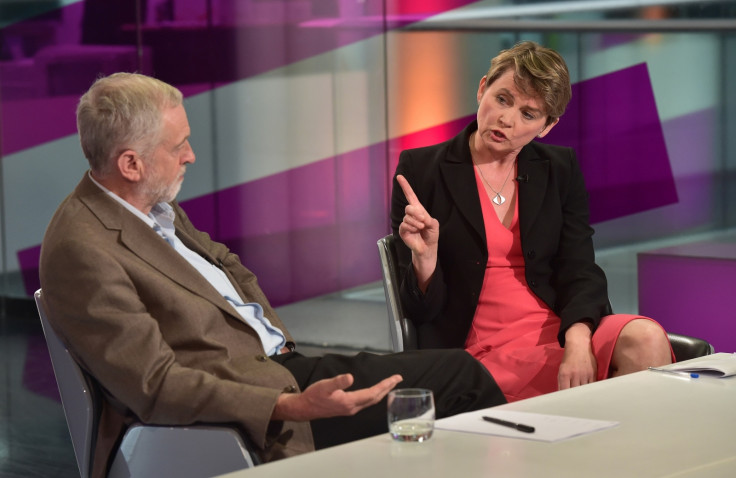Forget Ed Balls and his banjo, Labour's sensible technocrats are alive and well
When Corbyn loses the 2020 election, Cooper, Benn and Umunna will have their chance

Anyone who has watched Ed Balls dance the paso doble while dressed as a dragon-slaying knight or ham it up with a banjo for what can only be described as a lumber-Charleston on Strictly Come Dancing could be forgiven for thinking that his generation of sensible, technocratic Labour politicians has been pushed to the brink of extinction.
With Jeremy Corbyn's grip firmly sealed on the Labour Party's leadership, shadow cabinet, NEC and membership, the marginal are now the mainstream – and the mainstream are firmly pushed to the margins. Watching Balls dance every Saturday and Sunday night is entertaining, but it is also a witness what bathos looks like dressed in sequins. How far away from power are Balls and his cohort, the lost technocrat generation, the former ministers and should-have-been ministers.
But this week there has been a small power shift. Not big enough to change Corbyn's leadership, but something significant nevertheless. Two leading lights of the technocrat generation, Yvette Cooper and Hilary Benn, were elected as chairmen to powerful select committees.
Cooper, who takes charge of the Home Affairs committee, may be married to Balls but her future is firmly in front-line politics. She is no ballroom widow, but a potent and fearless force in Westminster. And as chairman of the Brexit select committee, Benn, who voted to remain in the EU, has one of the most important jobs in parliament. It is often said that select committees are "powerful" – but in the case of these two, they really are.
They also happen to be areas where Theresa May is on the shakiest ground: her government's Brexit plan is ill-formed, while the PM is personally caught up in what could turn into the first scandal of her premiership, just three months in – what she knew about the suitability of Dame Lowell Goddard as chairman of the child sex abuse inquiry.
In their new roles, Cooper and Benn can form the robust opposition to the government that is lacking from Corbyn. At the same time, without attracting any suspicion of plotting against their leader (that ship has sailed), they can keep their profiles high, build power bases, and maintain the credibility of the technocrat generation long after Balls has jived his last.
Corbyn may have seen off the plotters, and kept most of the moderates out of the shadow cabinet, but Labour's centrists are not extinct. Far from it. Besides Cooper and Benn, Chuka Umunna ran a close race for the Home Affairs chairmanship and will maintain his profile, both on that committee but also batting for a sensible case as the country prepares to leave the EU. Umunna, one of the brightest talents of his generation, could still lead the Labour Party one day.
And here is why. It is said, I believe wrongly, that the Labour moderates, the technocrats, can never hope to regain control of the party because the membership has changed so dramatically. It has lurched to the far left, in awe of Corbyn, and only a far left candidate can succeed him, it is claimed.
But I believe many Labour members are not "far left", they simply want Corbyn to fulfil his potential, as they see it, and were outraged at a plot to usurp him. In the summer's leadership contest, Owen Smith posed a weak challenge because he tried to be as left-wing as Corbyn, without the unique brand.
In 2020, after likely electoral defeat, the Labour party will be ready to refocus. There will be an appetite for power. It will be ready for a leader who looks like a winner but also one who is sensible, skilled and, yes, technocratic. That leader may not be Umunna, or Cooper. But Balls and his cohort should not despair. Dragons are extinct, but Labour's technocrats are alive and well.
Jane Merrick is a freelance journalist and former political editor of The Independent on Sunday. She writes an allotment blog, www.heroutdoors.uk.
© Copyright IBTimes 2025. All rights reserved.






















